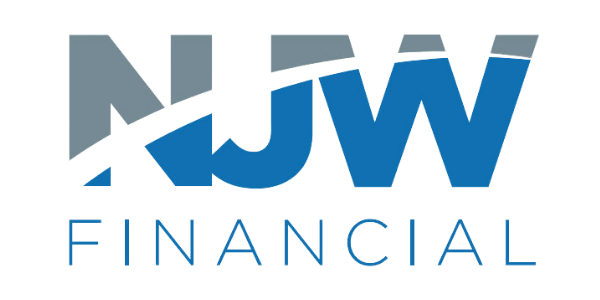5 things to help your own financial cost/benefit analysis with the cost of living crisis
Another day, another budget. Not unexpected and served up with an inglorious dollop of harsh reality.
We are one fiscal quarter away from the formal announcement of a recession, inflation just hit 11.1% and yet again, financial fear grips the nation. After the impacts of Brexit and Covid it feels like we have jumped out of the frying pan only to fall straight into the fire.
It would be easily understandable if you were to watch the news headlines from behind the couch these days! Who knew about the real impact of inflation on the cost of everything just a couple of months ago? Tax rises, public spending cuts, Government borrowing are all–big issues and they all represent a worrying time for many households. But there is some control you can wrestle back for yourself, and you can do it now.
The topics covered below are accurate at the time of writing and do not constitute advice. (Nov 17th 2022).
I’ve successfully helped countless clients through property crashes, and a head-spinning cocktail of changing mortgage criteria, but with every challenge there is an opportunity. Where there’s a will, there’s a way.
Speaking of wills and ways, today’s financial environment only increases the importance of protecting yourself and your family or business; structured wills, trusts and insurances can only have a beneficial impact on your worth, as well as your wellbeing.
Mortgage Lending: causing confusion for decades!
For many, the first time we think about Protection ourselves is a house purchase, so it’s worth noting that the issues we face today with mortgage interest rate increases. This has not been simply an overnight reaction to the disastrous mini budget in September ‘22. Rises have been coming for some time due to bigger fundamental issues that have taken place both here in the UK and internationally, going back to 2008. Just about all of them out of our control.
But we still have control over what we can do.
Let’s talk about 5 areas I believe in that you can review or action today. Any one of them could help you gain more control of your choices, allowing you to make better mortgage and personal finance decisions for both your short and long-term financial needs.

What’s my best option: a tracker rate or a fixed rate mortgage?
In times of rising interest rates it’s a big question due to variables and the great question of ‘what if..?’.
Only a few months ago 2 year fixed rates were starting from 2.5% and 5 year fixed rates from 3% and was a much easier decision to make for those seeking certainty of repayments for the fixed term.
Today however we have 5 year fixed rates increasing over a few short months to 5.59%. Locking in today at this rate assumes that the current turmoil will last 5 years. We simply don’t know that. If we look at history, it takes 18-24 months to settle, but of course that’s no guarantee of future performance!
So for those looking to purchase, remortgage or make a product transfer here are some things to consider:
- You will have heard of discounted variable rate mortgages and tracker mortgages. Both are variable i.e. if the source rate fluctuates, so does your mortgage payment, but they are priced significantly lower than fixed rates, for example 3.50%.
- Discounted rates are those discounted against the lender’s standard variable rate (SVR) and can be changed by the lender at any time. Tracker rates are similar in as far as they are variable, but in this case the lender will offer a rate that tracks the Bank of England base rate. In practice they offer BoE rate plus their margin. If BoE rates fluctuate, so does your mortgage payment.
- Both of these products offer good value in the short term and providing we can satisfy ourselves that we can afford the mortgage both now and in the future, it is an option worth consideration.
I should point out that lenders’ stress test a client’s affordability not only at the interest rate at the outset but at higher rates, ensuring that as far as possible, no-one will get into debt that they can’t afford.
In these examples if selecting a variable rate against a fixed rate, when compared to a fixed rate they would need to rise by 2.5% before the borrower essentially loses out. We know more rises are on the way, however what do we think about a major increase of 2.5% in the short term?
There is no right answer to this as it is down to opinion and many factors outside of our control. So, we need an escape hatch if possible. Selecting a discounted variable/tracker rate without any early redemption penalties so we can move to a fixed rate at any point without penalty will help provide some of that control.

Paying mortgage down
We’ve established mortgage interest rates are trending up, with clear signals of an additional rise in November. Some homeowners feel the need to pay down their mortgage quickly to lower the cost impact, as a result of rising rates.
However it's important to remove all emotion from financial decisions and develop a strategy that will work for you in the long-term. It can be beneficial to make extra monthly payments towards your mortgage. This reduces your interest payments and can even reduce the length of your overall mortgage term.
While paying off your (most likely) largest debt might seem like the best option to alleviate your anxiety during difficult economic times, it may not be the best way for you to channel your hard-earned money.
Things to consider:
- Should you pay down more expensive credit card or loan debt before your mortgage? The average purchase APR reached a record high this month, according to the Moneyfacts. UK Unsecured Lending Trends Treasury Report. Currently, this average APR stands at 29.6%, a rise from the 26.6% recorded in August.
- Are your savings rate of interest higher or lower than your mortgage rate? If lower then you may consider an overpayment strategy but if the savings rate is higher you may want to keep your money in savings as it could earn more than you would save in interest.
- It may seem obvious, but it is important to remember that if you throw every pound at your mortgage, there might not be enough money left over to pay other obligations. Are you able to save money for emergencies? Are you on track for reaching your retirement goals are you able to afford large expenses in the near future? Before making pre-payments, it is important to consider all your future goals and expenses.

Extending your mortgage term
When interest rates are on the increase along with the cost of living, one consideration is to extend your mortgage term to reduce your monthly mortgage repayment. This lower monthly repayment may be needed in the short term to balance your household budget.
However, it will increase your total amount of interest you repay over the extended term. When considering extending the term you should consider:
- Applying an overpayment strategy on future salary or income increases that will claw years back on the term and interest costs. This gives you control over how to shorten your mortgage term and manage payment levels.
- Checking your mortgage terms to ensure no penalties apply. Overpayments are generally allowed without penalty at 10% of the outstanding mortgage balance per year.
- Some lenders will provide options of a maximum age of 70 at the end of the term, unless income in retirement can be proven in which case age 75, or with certain lenders, age 80 is achievable. If you’re within 10 years of age 67, projections from your pension provider will be required. If you’re outside 10 years of retirement, proof of pension contributions required as part of the application process.
Early product transfer up to 6 months
A product transfer option with your mortgage is basically a product change with your current lender. This involves switching to a new deal with your lender to a more favourable interest rate, and possibly a revised term, if you decide to do so.
You will normally transfer to the new rate when your current deal ends. However, you might be able move to the new rate much sooner than usual, in many cases by up to 6 months. If you review your mortgage now, it gives you the option to look at the whole market to secure the most competitive deal from your current lender today, or secure a new deal elsewhere if more competitive rates are available.
While product transfers can be quickly arranged, it is always a good idea to have an independent mortgage adviser on hand to compare it with the rest of the deals available to you from the whole of the market before you accept your lender’s offer.
Conclusion
It may seem that the debt-free, asset-rich end goal is getting further away with rising interest rates, but it's important to keep your perspective. Your mortgage is only one piece of the financial puzzle. Because of its size (both financially and physically), it can often overshadow other options open to you that are equally worthy of consideration. As with all important financial decisions, research is key. Talk to an expert and then make the best financial decision for you.



